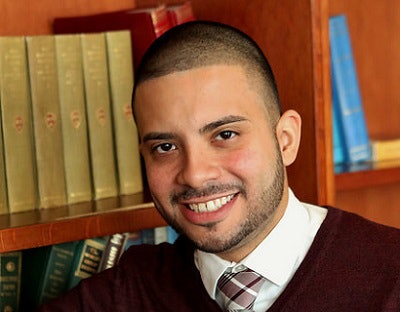Four years ago, I remember pacing my office unable to contain my excitement of being admitted into Penn’s doctoral program in higher education. From the moment I was formally accepted, I felt like I was granted entry to pursuing a career as a faculty member. Every graduation season that came afterwards, I grew more excited to wear the academic regalia for commencement and to be hooded by my advisor. There was something about the ceremony and the pomp and circumstance that seemed to mark the end of a significant accomplishment. Although I may have the opportunity to do so in the future, these past couple of weeks of defending my dissertation and everything that happens afterwards virtually or via email, has made this process seem anti-climatic and incomplete.
Words cannot describe how proud I am to have finished my doctoral program at the University of Pennsylvania. As a low-income, first-generation, and opportunity program student, I constantly questioned my own academic ability. My SAT scores were no where near the average admitted student at Cornell University, but I persisted. My quantitative reasoning score for the GRE was below the average admitted applicant. While we are led to believe that scores should have predicted my ability to persist in graduate school, I am proof that it didn’t. What it did prove is that with the right set of mentors and opportunities presented, coupled with a strong work-ethic and a robust supportive network of family and friends, I was able to “beat the odds” and show others that they too can do it.
 Dr. Andrew Martinez
Dr. Andrew MartinezAs I learned more about myself and the world as a sociology major, my thinking began to shift. I realized that I was not the problem, but the internalized doubt I had in myself would take years to get over—and I will admit, sometimes I still struggle. Nevertheless, spending the last few years conducting research on first-generation Latinx students applying to graduate school and learning about their transition into doctoral programs has reinforced my commitment to becoming a professor. The relationships I have developed with participants in my study has shown me how fulfilling I find this type of work to be and what role I can play as a future faculty member. While I may not be able to do all of this right away, I am excited to pursue opportunities that connect me with students who need that extra push from someone to realize how much value and purpose they have in the world. I see myself as a conduit for students to see the potential they have to be successful.
However, as I come to terms with our current reality under the COVID-19 pandemic, I can’t shake the feelings of uncertainty. Beyond the academic job market being very competitive, the looming economic impact this crisis will have in higher education makes it seem like this is the worst time to be seeking a job, especially on the tenure track.
I am grateful to my family, friends, and colleagues who have offered their support during these times. One piece of advice that I keep hearing is to maintain hope and to focus my time and energy towards my passions and things that make me happy. At the core of a these similar-sounding pieces of advice that I am getting is that the energy I put out is the energy that I will receive. Under normal circumstances, I think I would be more optimistic. However, it has been difficult when every day seems to bring up more questions about the future.
So this is my attempt to put out in the world what I would like to see. I desire to work at an institution that values my work. An institution that has a commitment to supporting scholarship aimed to help end social inequities in education and help improve the experiences of students in college no matter how they identify. I intend to surround myself in an environment that values teaching and mentorship, where my relationships with students matters as much as how many publications or grants I acquire. I yearn to be part of a departmental community that seeks to be innovative, where faculty and students can see the role they play in making their program stronger.
I do not know what the immediate next-step will be for me. But what I do know is that I will never give up trying to help students make the best out of their educational experiences and realize the potential they have to pursue their dreams. Students are my hope.
Dr. Andrew Martinez is a research associate and visiting scholar for the Center of Minority Serving Institutions at Rutgers University-New Brunswick. You can follow him on Twitter @Drewtle


















